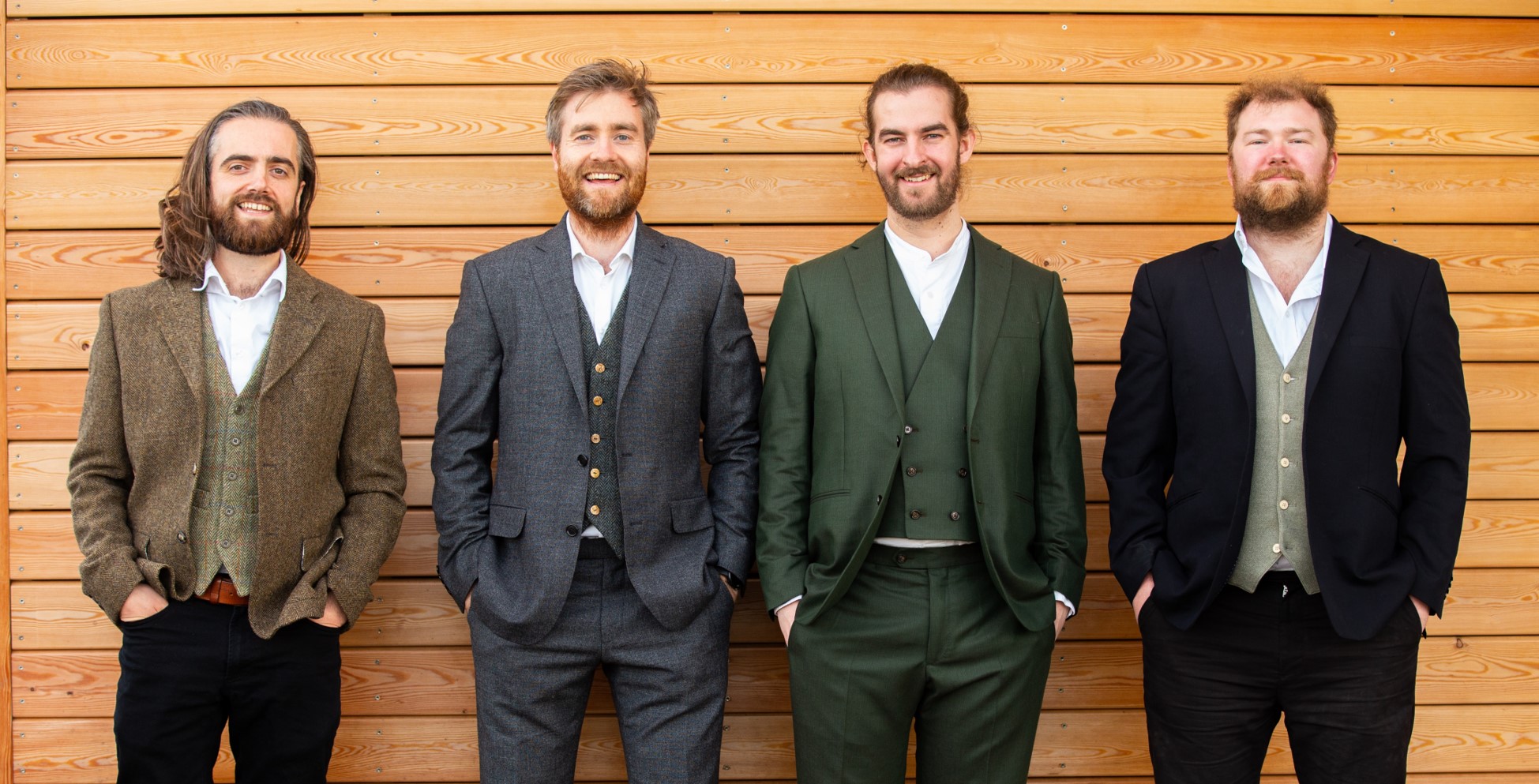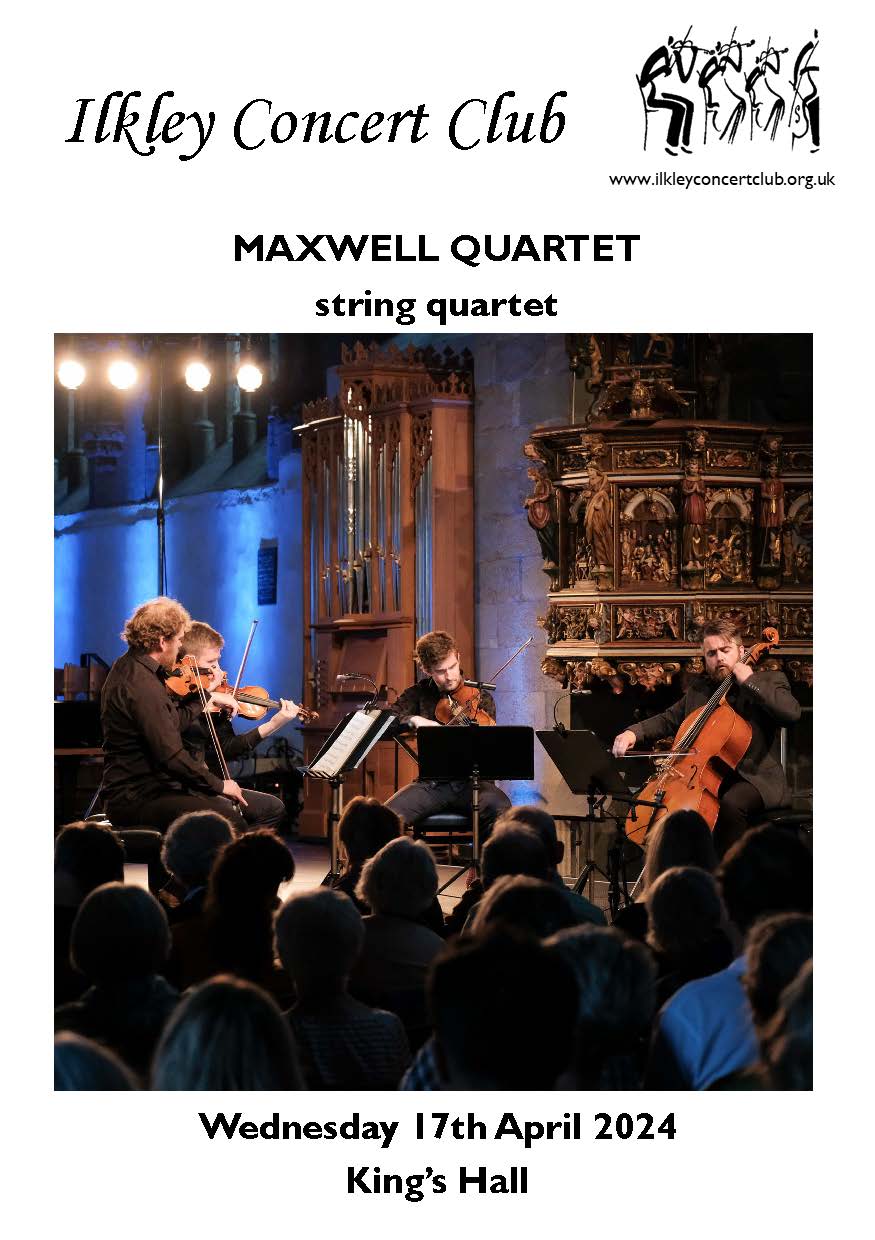REVIEWS
MAXWELL QUARTET string quartet

Wednesday 17 April 2024 7:30pm
Haydn String quartet in E flat major, op 20 no. 1
Haydn String quartet in F minor, op 20 no. 5
Beethoven String quartet in C sharp minor, op 131
The Maxwell Quartet is formed of four close friends, who grew up playing folk and classical music together in youth orchestras and music schools across Scotland and came together in 2010 at the Royal Conservatoire of Scotland. Now reckoned one of Britain’s finest young string quartets, they won first prize at the 2017 Trondheim Chamber Music Competition. The Gramophone greeted their CD of Haydn’s op 74 quartets as ‘fresh, unaffected playing … with an authentically Haydnesque joie de vivre.’
For this concert they bring to Ilkley two of Haydn’s earlier op 20 quartets, often thought to mark an important milestone in his development of the genre, together with Beethoven’s profound last-composed quartet, op 131, which is where he went furthest in experimenting with the form and of which Schubert is reported to have said – ‘After this, what is left for us to write?’
REVIEW BY Chris Skidmore
A TRIUMPHANT FIRST VISIT
The Maxwell Quartet made a first visit to Ilkley last Wednesday bringing a programme of Haydn and Beethoven. These four friends, three of whom are Scots, ground their practice in the playing of folk music and, as you might expect, have a full-bodied string tone and great rhythmic vitality. The stillness of the first violin, Colin Scobie, marks him out as central to the ensemble, matched in sweetness of tone by the second violin, George Smith. The conversations between Elliott Perks, viola, and cello, Duncan Strachan have a lively energy which is a joy to watch. This is a group which plays as one while giving rein to each individual personality.
The programme commenced with two of Haydn’s six ‘Sun’ quartets, op 20, the first flowering of his quartet writing. Number one has a lively first movement which gives way to a flowing minuet. The slow movement, which is in four-part harmony throughout, showed off the group’s smooth blended sound at its best. They took the fourth movement at a punishing presto which both did justice to their agility and brought out the complexity of the syncopation. Number five, which followed, was in fact the first to be written and is in a dark F minor. The slow movement here is a slow Siciliana with its gently rocking rhythm and the final movement a fugue, which the group started quietly and crisply but growing to a triumphant finish.
The second half was taken up with Beethoven’s last quartet, the op 131. After a lively and informative introduction from Elliott, the quartet gave a strong performance of this remarkable and complex work. The initial adagio was allowed to evolve slowly into the first allegro. The variations which comprise the third movement demonstrate all Beethoven’s ingenuity in the form but, as we were warned, start to disintegrate towards the end, with the cello demanding to move on into the brief presto which introduces the final pair of movements. We in the audience were held in deep concentration until the final triumphant chords released us into resounding applause.



